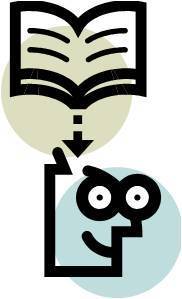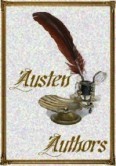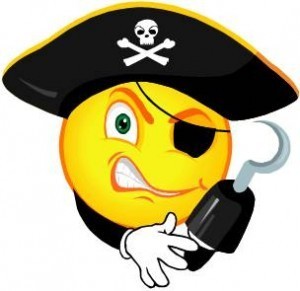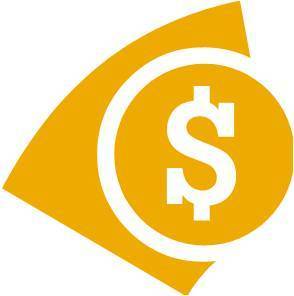Jennifer Becton's Blog, page 55
June 9, 2011
Publishing Fear Free: Etiquette
 I know it probably seems odd to write about etiquette in a publishing post, but I think it's one of the most important factors in book promotion. Many websites, blogs, and message boards invite authors to promote their books for no cost; however, writers have to learn the rules of each venue. Where can you promote, what exactly you can do, what size your pictures can be: these are all things that vary from place to place. Your ability to follow the rules will directly effect your promotion because, I've found, these sites are usually pretty quick to evict you if you're a rule-breaker.
I know it probably seems odd to write about etiquette in a publishing post, but I think it's one of the most important factors in book promotion. Many websites, blogs, and message boards invite authors to promote their books for no cost; however, writers have to learn the rules of each venue. Where can you promote, what exactly you can do, what size your pictures can be: these are all things that vary from place to place. Your ability to follow the rules will directly effect your promotion because, I've found, these sites are usually pretty quick to evict you if you're a rule-breaker.
Not only do you have to follow each site's rules, but there are some unspoken rules that should be considered. Here are some things I've learned:
Authors do better when they cross-promote with each other, so don't look at other writers as the enemy or as competition. Join together and your total promotional power will increase. Consider guest blogging on each other's sites, retweet their posts on Twitter, swap excerpts for back matter.
Do promote in appropriate places. Don't shove your book down people's throats, but always make your information readily available.
Think hard before you review other books in your genre. I've talked about this before.
Don't bash other people's books. It makes you look petty.
In addition, most writers agree that it is inappropriate to promote your work in a review for another author's book, and Amazon even expressly forbids this in their rules. If you believe your audience overlaps with another author's and you'd like to take advantage of that, just contact the author directly and talk about cross-promotion. Don't try to get something for nothing.
Learn from Rep. Anthony Weiner (D-NY). Don't say anything online that you wouldn't want everyone to read or see. The Internet is forever.
So in summary, just act like you got some sense.
June 7, 2011
Bait and Switch? No, Bait and Bait!

Bait and Bait! Bait and Bait!
Have you ever bought a book based on the cover, description, or back copy and found that it was nothing like what you expected? Or you got an ebook and it turned out to be shorter than you expected? It's annoying, and you feel as if you've been involved in a bait and switch.
So learn a lesson from your own experiences and don't make your book a bait and switch; make it a bait and bait.
Make your cover accurately reflect your content. Don't use a pretty picture if it has nothing to do with the characters or action of your novel.
Write your description and back copy based on what happens in the book. I know it sounds obvious, but sometimes, it doesn't seem to work out in reality. Just describe the book.
Use examples, if necessary. There's nothing wrong with saying that your book is similar to another work. It will help readers understand exactly what they are getting.
Just state how long the ebook is. Most readers don't seem to know or care what makes a novella different from a novel, but they will get awfully angry if they end up with a book shorter than they expected, even if it blatantly says novella. Just put your word count right there in the book description and give the corresponding page count for your paperback, if it exists. People might still complain, but at least you know you were very, very clear about what to expect.
Make sure your readers know exactly what they are getting before they order, get angry, and then leave a negative review for something as simple as not having an adequate description of your own product.
June 6, 2011
Debut Post at Austen Authors
 Today, I'll be blogging for the first time over at Austen Authors. Please come by to say hi and get the coupon code for a free e-copy of "Maria Lucas." You can also enter to win a signed copy of Charlotte Collins.
Today, I'll be blogging for the first time over at Austen Authors. Please come by to say hi and get the coupon code for a free e-copy of "Maria Lucas." You can also enter to win a signed copy of Charlotte Collins.
June 3, 2011
Announcements
Beginning on June 6, I'll be blogging twice a month at Austen Authors. I'm honored to have been invited to join this group of authors, and I look forward to contributing there.
I'll also be joining another exciting Austen blog, which hasn't been launched yet so I'm keeping my lips sealed about it, but I'm looking forward to that too! I'll be posting there on the last Friday of each month about publishing topics.
I'll be adding both blogs to a sidebar blogroll so you can follow along from here if you like.
Also, I figure it's time for a sales figure update.
"Maria Lucas" has sold 400 copies since I launched it March 5. That is above and beyond anything I expected. Thank you for buying!
Charlotte Collins is approaching 4,000 sales. This month was quite interesting to watch the Austen genre on Amazon. Several sequels, and at least two from big names in the genre, came out and at various price points, and I'm not going to be coy. My sales slowed for a while. This is to be expected in the ebb and flow of the industry, but it has been especially instructive to watch what the new releases have done in relation to price. Charlotte seems to have stabilized, and I'm anxious to see what happens to it when Caroline comes out.
On that subject, I recommend using Createspace's Expanded Distribution. My overall income from paperbacks has increased by 50 percent since I expanded distribution, but I'm still selling at the same rate. The price has dropped to $9.35, but I'm making more money per book. However, it takes up to 3 months for changes to propagate throughout the expanded system, so I plan to give it a few months before I expand on Caroline just in case I find some awful error in the paperback edition. I don't want 3 months of errors getting out there.
Oh, and Absolute Liability is at the proofer, and Caroline will be there soon. Then, I'll be making the final corrections and formatting them for publication. I'm so excited!
And one more thing, I'll be launching my new Southern Fraud/J. W. Becton website and sharing the cover of Absolute Liability in the next few weeks!
May 31, 2011
Repeat after Me: Publishing Is a Business
Publishing is a business; writing is an art.
So a few months ago, Barry Eisler decided to forgo a $500,000 2-book deal with St. Martin's to self-publish. This week, the news broke that he had signed a deal to publish his next RAIN novel with Amazon's new thriller imprint Thomas and Mercer. J. A. Konrath–that force of indie pubbing–also has at least one book with Thomas and Mercer.He and Konrath discuss their decisions here.
Apparently, many in the indie publishing community find Eisler's and Konrath's decisions to sign with Amazon's imprint to be hypocritical, and frankly, that's just silly.
I have tried to make the point on this blog before that publishing is a business. The reason established authors are leaving legacy publishing and that new authors are not even pursuing that route anymore is because it is not good business. A new model came into play that made the old one obsolete. Authors can now take their work directly to consumers and earn much more money per book. No longer do writers have to pretend that they enjoy being poor, starving artists. They can actually make a living at their jobs!
But does that mean self-publishing will always offer the best business model? That it's the be-all-end-all? No. Keep an open mind. What if a company were able to offer the best of both worlds? You would get full editorial control, but you'd have the use of proofreaders and cover artists and a huge marketing department. You could get your book in physical stores, thereby expanding your market. You'd be making excellent royalties too.
Wouldn't you at least look into it? It would be foolish not to. Publishing is a business; writing is an art. And indie publishing is one business model for bringing your art to market. I believe it is a good model, but you'd better believe I'd look into all the options. Don't artificially prevent yourself from making a good business decision because you've labeled yourself "indie only."
May 27, 2011
Cancellation Notice: A Southern Fraud Short Story
In celebration of Memorial Day, I'm posting a free short story from my Southern Fraud Thriller series. Absolute Liability, the first book, will be out this summer. Also, keep an eye out for my fancy new flash website dedicated to the series (if I can get it built without going mad),
May 26, 2011
Learning from Other Media: Digital Music

Arrrrrr! I'm the evil ebook pirate! Fear me!
I was going to write a nice post about how music can teach writers to add pauses to their manuscripts, thereby adding tension and drama. But I've decided to go a completely different direction because I believe the most important thing the music industry can teach writers is about digital content piracy and DRM.
I'm going to say this pretty plainly. I want people to pirate my book. It'll be a badge of honor, and it will mean ton of free publicity. When JA Konrath literally gave a book away free on his website, his Amazon sales of the same book (at the original price) improved by 600 percent over the same time period. So, you can guess that this isn't going to be some big lament over lost income due to ebook piracy. My own small study supports this, and other business models actually use this exact technique. Many comic writers give away digital copies free on their sites.
There are no credible studies out there that prove piracy affects sales negatively. People take things for free that they may never have bought. They take it just because its free, so a pirated copy does not necessarily mean a lost sale, but it may mean a new reader who will buy your next book.
Let's look at what happened in the music industry. Everyone went crazy and started calling for digital rights management (DRM) and filing lawsuits against pirates. What good did that do? Has piracy stopped in the music industry?
No. It hasn't.
So my question is this: what makes publishers and authors believe the same approach will work for them? I believe that is a good example of doing the same thing but expecting different results: insanity.
There are publishers and authors who refuse to allow their books to participate in the lending programs offered by Amazon and BN. (Each ebook can be loaned once for two weeks.) They believe they are preventing a lost sale by forcing people to buy instead of borrow. What does this really accomplish? It pisses people off. If they can't borrow a $10 ebook from their friend, like they used to be able to borrow a paperback, then do you think they're going to go buy the $10 book or go find a pirated copy for free? Hint: the fact that they were going to borrow the book originally shows that it was not worth it to them to pay $10 to have a copy of their own.
This isn't a writer vs. reader thing. We should be trying to make our readers happy, and readers just want what they've always had: the freedom to do with their books as the please. I want them to be able to put their ebook in any format on all the ereaders they own or will own in the future. I want them to be able to share it with friends. They can delete it, but they can't sell it to a used bookstore or donate it to a library, which is a disadvantage of ebooks. I shouldn't add to those limitations.
So how do you prevent loss of sales as an ebook writer? Well, Konrath talks about convenience and cost, and I'm inclined to agree with his assessment.
Make it easy for a reader to purchase your ebook. Sell it everywhere and in all formats.
Make it easy for them to use the book as they please. Don't use DRM. It's useless. It can be overcome fairly easily, and it just irritates people who otherwise would never turn to piracy. Enable lending. Give them freedom.
Sell it for a reasonable price. I'm not going to tell you what the right price is, but setting your price too high isn't going to help you make sales, regardless of the piracy issue.
Do I think piracy will help my sales? Maybe, but at the very least, I do not think it will hurt them. The fact that ebook sales have grown despite piracy shows that it's not so detrimental that all growth is stopped.
What about websites that arrange exchanges of lendable ebooks? So? There are limits on lending (1 time only per ebook). And there's no guarantee that someone would have bought my book as opposed to checking it out from a library. A loaned book isn't necessarily a lost sale. It's a potential future sale on my next book.
Do I support piracy? No. I worked hard on my book, and I deserve fair compensation for my efforts, but I also realize that the current methods for dealing with piracy are completely useless, so I have to find other methods (cost, convenience) to ensure the best possible return on my time and labor.
So writers, learn from digital music. Don't waste your time fighting piracy by using useless methods and don't bother getting angry about it. Fight by making your books good, available, and inexpensive.
May 23, 2011
Writers: Save your Marriages!
Picture this. This house is dark and silent except for the sound of the cat purring at the foot of the bed. Your spouse is already asleep, but you have been, as usual, thinking about the novel you're working on.
Then, all of a sudden, you are struck by writing brilliance! You have had the idea that will make your book a NYT bestseller instantly.
You scramble for your bedside lamp, and after you grab your pen and paper and write down the idea, you look to your spouse, who is no longer asleep. And now your spouse is angry. They were in the midst of a good dream about some hot celebrity or a car with a large V-8, and you ruined it. Their sleep has been ruined, and as a consequence for your nocturnal scribblings, you are relegated to the couch.
It doesn't have to be that way. My friend and soon-to-be-published author Keven Manus-Pennings introduced me to the nurse's pen, also used for navigation and police purposes. Seen here:
That picture turned out to be tiny. Sorry, but what you can't see is that there is a small light at the tip of the pen that illuminates your writing surface without the need for turning on a lamp. Now, you can write without ticking off your spouse and ending up on the sofa! Pretty darn cool.
Also, remember Kevin's name. His fantasy novel A Shore Too Far will be out later this summer. And yes, I've started reading it, and even though I'm not a fantasy person in general, I really do like it so far and would definitely read more. It's on my Kindle to-buy list.
May 20, 2011
Fraud Friday: Random News
Absolute Liability is in its last major rewrite, and I'm pretty excited about it. I hope to have the book available sometime in June, but I'm not promising anything, except that I'll do the best I can.
I'm going to try some new things with this book, the first in a six-book series of thrillers set in the South. I'm going to build a new fancy flash website for the Southern Fraud Series, and I'll be releasing two short stories for free on this site, the new site, and at Smashwords. I also have a large promotion set up for mid-July, which I plan to do in conjunction with a few new techniques. I'll also be playing with price more.
I don't know how well any of this stuff will work, of course. Again, I'll be a relatively unknown author because I'm going to be writing in a completely different genre and using a completely different style. And this is a much bigger market.
It should be interesting to see how Absolute Liability fares out there in the even wider book world. But I'm also excited about trying something new and keeping it fresh. And I'm reinvigorated about the opportunities self-publishing offers. I'm not trapped into one genre; I can try anything.
We'll see how it goes!
May 18, 2011
My Commencement Address

Welcome to the Best Days of Your Life
It's graduation time, that joyous part of the year when students complete their academic journey or a portion of it. The phrase "real world" is thrown around quite a lot. Oh, the real world is scary, college/working/raising a family is hard, and you'll have all these awful responsibilities. The message is this: the best years of your life are over.
Piffle!
This is what I wish someone had told me:
Welcome to the real world!
For the last eighteen (or twenty-two years), you have been in school. For eight hours a day–plus the hours you spent on homework–you were subjected to the topics, facts, and opinions that someone else thought were important. Now, you get to choose for yourself what you want to learn. You can choose to learn nothing, or you can choose to read and study whatever you enjoy. You get to choose what you learn.
For eighteen (or twenty-two years), you have earned little or no money for your efforts. Now, you can get paid for doing the things you enjoy. No more going to Mom or Dad for handouts. You have your own cash! And that means you can spend your money however you choose. You can buy whatever you want, save it, or invest it. You get to choose what you do with the money you earn.
For eighteen (or twenty-two) years, you were told what to do. You did chores, did your homework, and went to bed when you were told. Now, you get to choose when and if you do anything. You can be irresponsible and waste time all day long. You can work hard and be productive. It's up to you. You get to choose what to do with your time.
You get to choose what you want to do with your life. You can have the exact life you want. You are free. With freedom comes responsibility. Yes, you are now responsible for yourself, but look at what you get in exchange: freedom and choice. As you stand on the verge of your adult life, don't let anyone tell you that the best years of your life are over.
The best years of your life are just beginning.






